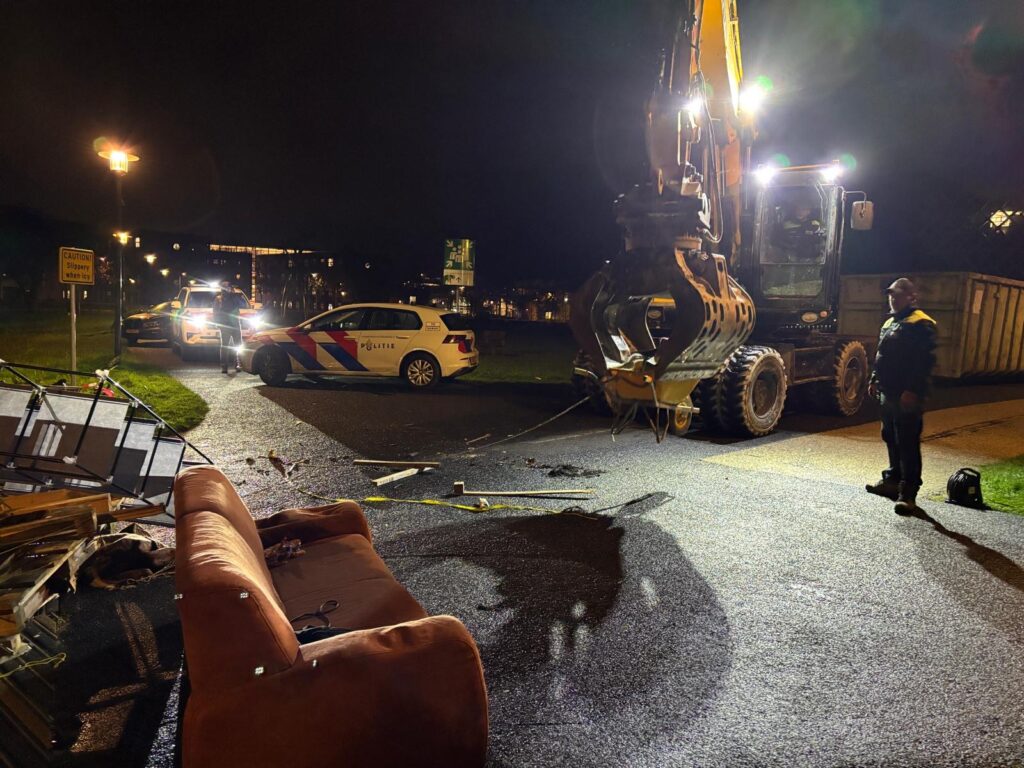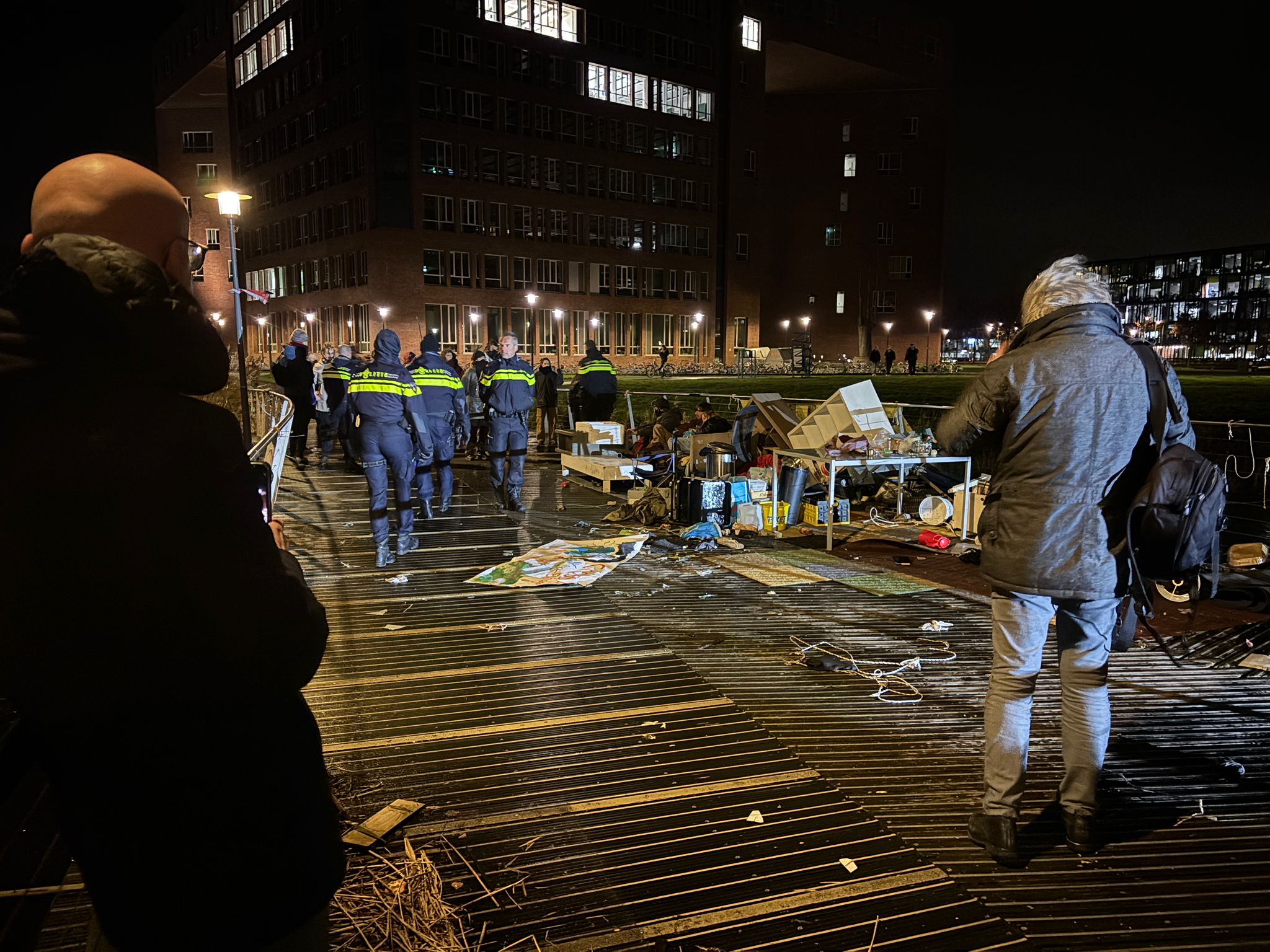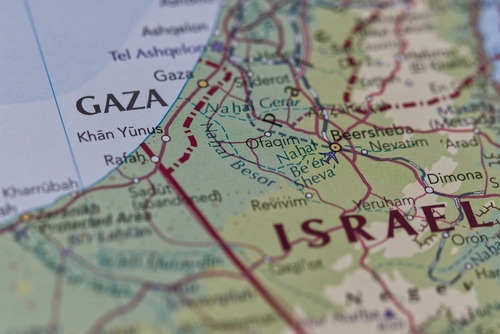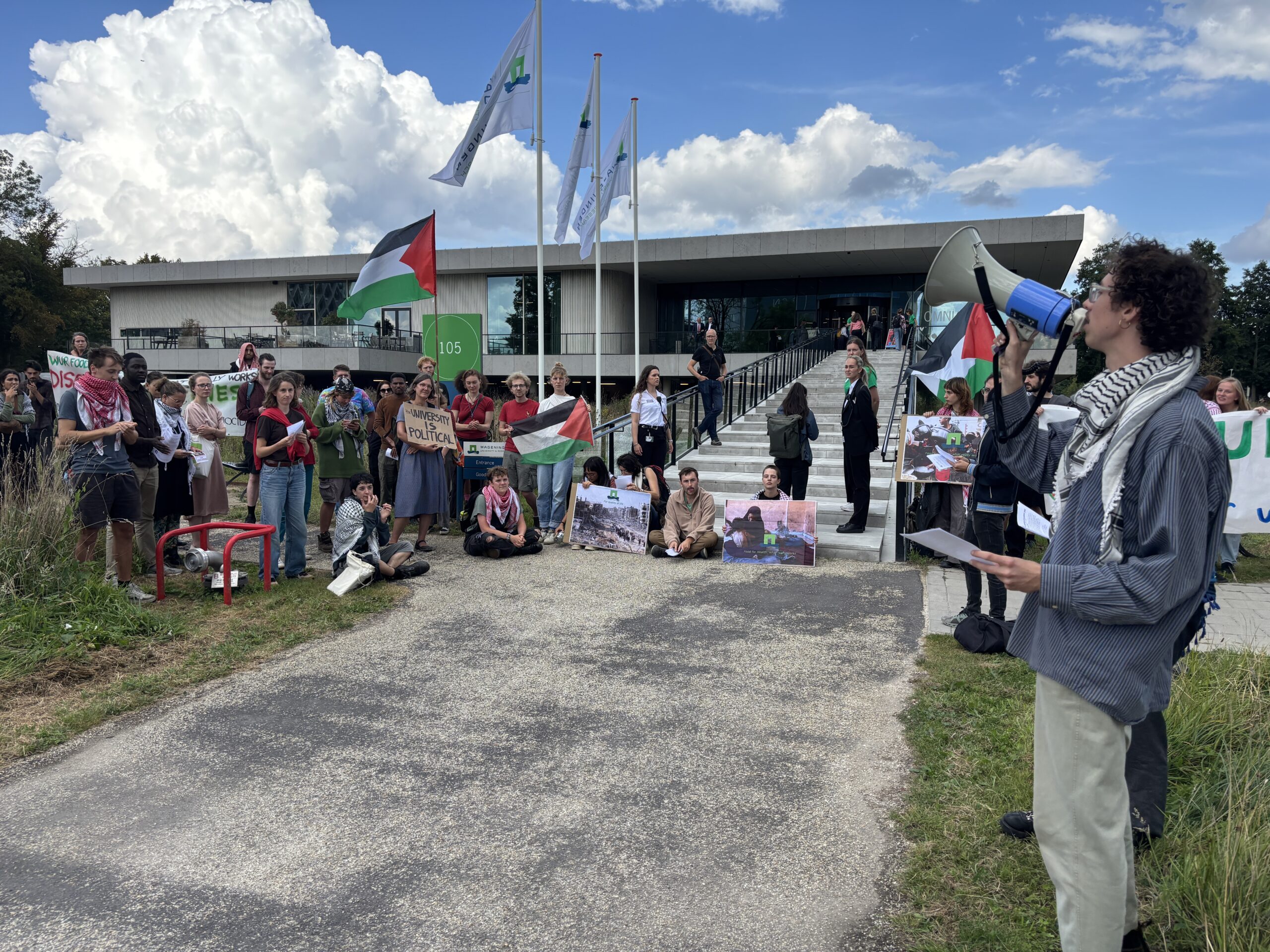After more than six months of occupation of the bridge between Forum and Orion, an end is put to the tent camp tonight. Police are on the scene. The activists refuse to leave.
Translation using DeepL.
The longest-running pro-Palestine encampment at Dutch universities appears to be coming to an end tonight. Men began removing tents around seven o’clock. Not long after, some 15 activists came and the atmosphere became a little grim. The men removing tents were filmed at close range and activist tried to salvage belongings. After some threats back and forth, the police arrived, and the students withdrew. Student and spokesman for the activists Boris is outraged by a show of hands with the eviction officer. ‘And we had no notice beforehand that there would be evacuation.’ After eight, as the evacuation restarted, some of the activists left and some remained seated while singing ‘Power to the people’ and ‘Free, Free, Palestine’. Police informs them that the duty officer is on his way.
The activists who refused to leave after repeated requests were eventually removed from the bridge by police with some force. No one was injured in the process. However, a number of activists suffered severe bruises. The Gelderlander’s photographer captured some of the skirmishes.
Spokesperson Vincent Koperdraat was at the scene and said that this is a ‘clearance’ and not an evacuation. ‘We are doing this for safety reasons. It’s getting too dangerous with this storm. All sorts of things are blowing away.’ He also adds that Brick – who was living on the bridge until two days ago – did receive advance notice.
On May 15, students started the encampment. They were and are still calling on WUR to break all links with Israeli institutes.
UPDATE: the bridge is nearly empty now and the police are leaving. No arrests were made.


 Foto: Resource.
Foto: Resource. 


Sadly, you missed to mention the violence the police officers used on students and people who were merely there helping moving things. If the whole “clearance” was for safety reasons, is it necessary to raise your sceptre and land it blindly? Sadly, when the big stick fall on the back, the hand, the shoulder, the leg of the students, you looked away, you dropped your pen, as a journalist.
What a swift re-editing. Who was your news reporter at the scene, why was those bruises only mentioned after the re-editing? If there was someone there reporting real-time, what were the reasons that made you miss mentioning it at the first place? If there was no one there reporting, what did you base your news on?
Thanks for your comment Wenjioa. Our editor Marieke was present from around 6:50 p.m., when she noticed that something was going on at the encampment. She stayed until approx. 21.45, when the bridge was clear and police had left. She made herself known as a Resource editor and spoke to all parties, both during and after. She reported to me and I wrote the text, so we could directly publish the news online. The addition about the violence was a ‘moving insight’, because on reflection we found the description “grim” was too unclear. And we are working on a follow up. Hope this answers your questions.
“No one was injured in the process. However, a number of activists suffered severe bruises.”
Severe bruise – is – injury.
If you ever taken a middle school English class, you’d know to avoid passive writing.
A better version: “Activists were injured in the process. Police beat them so they suffered severe bruises.”
ChatGPT can write better.
Quit your job.